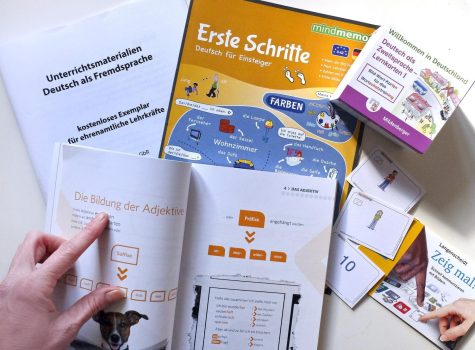How Long to Learn German
February 24, 2023
Learning a new language can be challenging, but it doesn’t have to take years. If you’re willing to invest time, you can achieve your goals quickly.
The speed of your language learning depends on many factors, including how much time you devote to study and how motivated you are to learn. But if you want to get fluent, it’s crucial that you stay motivated and stick to your plan.
Listening
If you’re looking to learn German, there are many different ways to go about it. You can use a language course, an app, a textbook, or even find a partner to help you along the way. Choosing the right method is important, and can determine how fast you’ll progress.
If you want to learn a new language quickly, make sure that you’re spending plenty of time listening to native speakers. The more you listen to German speakers, the faster you’ll be able to improve your skills. You should also try to spend a few hours each day reading newspapers or other news sources in German. You’ll be able to practice your new vocabulary and keep up with the current trends. Lastly, you should try to talk to people who speak the language, as this will help you practice your pronunciation and give you a chance to learn more about German culture. Most people understand that you’re trying to learn the language, and will appreciate your efforts.
Another great way to learn German is using apps and websites. There are bundles of websites and apps that offer German language learning. One of the best apps is italki. You can easily learn German with an italki German teacher.
Reading
Reading is one of the most important aspects of learning German. It can open doors to new worlds, reshape your identity, and boost your imagination. It also has a wide range of benefits for your mental and physical health, including improved memory, higher self-esteem, better moods, and reduced stress levels.
However, learning how to read is not an automatic process. It involves a variety of skills, such as decoding, word recognition, comprehension, fluency, and motivation. It also requires a lot of practice and repetition to learn, so you should make sure that you spend enough time on it. If you’re looking to improve your language skills, it’s important to choose a resource that can help you reach your goals as quickly and efficiently as possible. Make sure to find a high-quality German book, course, or website that is designed by experts with a proven track record of success with learners like you.
You should also try to avoid over-studying, especially in the beginning stages of your German study. Trying to remember everything at once will only be exhausting and not help you progress in the end. Moreover, you should also be aware that different languages take different amounts of time to learn. This is why it is essential to know how to estimate how long it will take you to complete your study program.
Writing
Learning German can be challenging, especially for those who don’t have a lot of previous language experience. You’ll need to put in plenty of time and effort, as well as practice speaking the language on a regular basis to learn it fluently. The length of time it takes to learn a language depends on many different factors. These include the individual’s motivation and dedication, their learning method, their previous language knowledge, etc.
This is because the linguistic structure of a language is often quite complex, and you may find it hard to grasp some concepts in the beginning. If you’re struggling to grasp something, it’s usually a good idea to hire a tutor who can help you understand the concept. Using these tips can help you to master German in no time! You’ll soon be able to enjoy your vacation in Germany, speak with your friends and family, or even study abroad! With a little dedication and motivation, it’s entirely possible to learn German in just a few months!
Speaking
German is a very common language and it is spoken in many countries. It is a lingua franca of many major economies and it is also the first foreign language that most people learn in their lives. It can take a while to master German, but it is not impossible to become fluent in it. A lot depends on how much you want to learn and on your approach to learning it. You need to be dedicated and patient, but it is possible to reach your goals in a short period of time if you work hard.
The most important thing is to make an effort to learn the language as soon as possible. That means practicing daily and speaking with native speakers. This will help you quickly reach your goal of being able to communicate with German-speakers. You can also practice speaking with friends who are already learning the language, or you can join a group of German-speakers in your area and chat with them in their native tongue. This will be a great way to practice your speaking skills and get feedback from other learners.
Vocabulary

Vocabulary is the key to being able to speak a foreign language fluently and understanding native speakers’ conversations. The more words you know, the better you’ll be able to communicate with German speakers. Many English-speaking people are pleasantly surprised to find that they already have some German vocabulary thanks to the fact that their languages share a common language ancestor. This is called cognates and is a huge help when learning a new language.
One way to build your German vocabulary is to practice it in everyday life. For example, labeling things in your home or office with the German translations is an excellent way to improve your vocabulary without even realizing it. If you want to get the most out of your German vocabulary, you should also spend some time studying idioms and expressions. These words are used in everyday conversation and are an essential part of the language.
Using these resources, you should be able to start speaking and understanding German in no time. Remember, though, that it takes time to master the language, and it’s never too late to begin!
Also Read: Techalphanews.com



